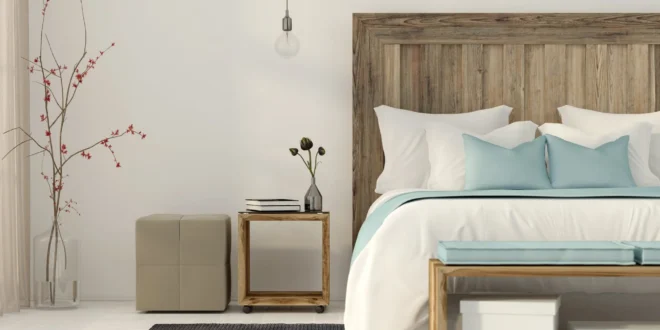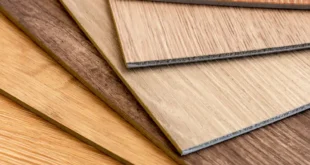When it comes to designing a bedroom, one of the most important elements is the furniture. However, with so many options available in the market, it can be overwhelming to choose the right pieces that will not only fit your space but also create a cohesive and unique look.
In this document, we will guide you on how to mix and match wooden bedroom furniture for a unique and personalized look.
- The Versatility of Wooden Bedroom Furniture
- Choose a Dominant Wood Tone
- Consider Contrast
- Coordinate with Colors
- Play with Textures
- Experiment with Different Styles
- Use Neutrals as Anchors
- Stick to a Limited Palette
- Customization
- Get Creative with Storage
- Accessorize Thoughtfully
- Consider Furniture Shapes
- Experiment with Furniture Arrangement
- Don’t Limit Yourself to One Brand
The Versatility of Wooden Bedroom Furniture
Wooden furniture has been a popular choice for bedroom decor for centuries. From classic to contemporary, wooden furniture can effortlessly blend into any style and add warmth and charm to the space. It also comes in various types of wood, such as oak, pine, mahogany, cherry, and more, making it easy to find a piece that suits your taste and budget.
Choose a Dominant Wood Tone
The first step in mixing and matching wooden bedroom furniture is to select a dominant wood tone. This will act as the base for your design and tie all the pieces together.
To choose a dominant wood tone, look at the existing elements in your bedroom, such as flooring, walls, or even a large piece of furniture like a bed frame. Select a wood tone that complements these elements and use it as a starting point for your design.
Consider Contrast
Mixing different matching wood tones can create a unique and visually appealing look in your bedroom. However, it is crucial to consider contrast when doing so.
If your dominant wood tone is dark, add pieces with lighter tones to create depth and balance in the room. Similarly, if the base is light, incorporate darker shades for contrast.
Coordinate with Colors
Wooden furniture doesn’t have to be the only element in your bedroom. You can mix and match with other materials, such as metal, glass, or fabric to add interest and dimension to your space.
When doing so, make sure to coordinate these elements with the wood tones you have chosen. For example, if you have a wooden bed frame, consider using metal nightstands with wood accents to tie the look together.
Play with Textures
Mixing different wood textures can also add character and depth to your bedroom. You can pair a smooth, polished wood finish with a distressed or rough one for an interesting contrast. Similarly, you can mix glossy and matte finishes for added texture in your space.
Experiment with Different Styles
Mixing and matching wooden bedroom furniture gives you the freedom to experiment with different styles and create a unique look. For example, you can combine rustic pieces with sleek modern ones or mix vintage finds with contemporary designs. Just remember to stick to your dominant wood tone and coordinate colors and textures for a cohesive look.
Use Neutrals as Anchors
If you are feeling overwhelmed with mixing different wood tones, consider using neutrals as anchors for your design. Neutral-toned furniture, such as white or grey, can act as a bridge between different wood finishes and create a seamless look. You can also use neutral-colored bedding or curtains to add balance and tie the design together.
Stick to a Limited Palette
When mixing and matching wooden bedroom furniture, it is essential to stick to a limited palette. Too many wood tones can create a chaotic and cluttered look in your bedroom. Stick to two or three different shades and use them consistently throughout the space for a cohesive and balanced design.
Customization
We understand that not everyone has access to custom-made furniture, and sometimes, even popular furniture stores may not have exactly what you are looking for. In such cases, don’t be afraid to get creative and customize your furniture.
You can purchase an unfinished wooden piece and stain or paint it to match the rest of your bedroom furniture. This way, you can still achieve a unique and personalized look without breaking the bank.
Get Creative with Storage
If you’re working with a small bedroom space, consider using wooden furniture that doubles as storage. Murphy beds, for example, are a popular choice for small spaces as they can be hidden away when not in use. While IKEA doesn’t sell Murphy beds, there are plenty of other brands and DIY options available that can add both style and functionality to your bedroom.
Accessorize Thoughtfully
Accessories can make or break a design, and the same goes for mixing and matching wooden bedroom furniture. When choosing accessories, consider the wood tones in your furniture and coordinate accordingly. You can use pillows, throws, rugs, and artwork to add pops of color and texture while still maintaining a cohesive look.
Consider Furniture Shapes
Aside from wood tones, another way to mix and match wooden bedroom furniture is through different furniture shapes. For example, if you have a bed with clean lines and sharp edges, consider complementing it with a round nightstand or dresser. This adds visual interest and breaks the monotony of similar shapes in the room.
Experiment with Furniture Arrangement
Don’t be afraid to experiment with the arrangement of your furniture. Instead of placing all wooden pieces next to each other, try breaking them up by incorporating other materials in between.
You can also mix and match different types of wood, such as a dark-stained bed frame with a light-colored dresser. Play around with different arrangements until you find the one that best suits your space and style.
Don’t Limit Yourself to One Brand
One common misconception when it comes to mixing and matching wooden furniture is that all pieces must be from the same brand. This is not true, and in fact, limiting yourself to one brand can result in a cookie-cutter look. Instead, explore different brands and collections to find unique and complementary pieces for your bedroom.
Mix and Match Wooden Bedroom Furniture Easily
Mixing and matching wooden bedroom furniture can be a fun and creative process that allows you to express your style. By following these tips, you can create a unique and cohesive look in your bedroom that reflects your taste and personality.
Remember to start with a dominant wood tone, consider contrast, coordinate colors and textures, experiment with styles, and accessorize thoughtfully. Happy designing!
Is this article helpful? Keep reading our home decor blog for more.
 SlushWeb Live the Way You Love
SlushWeb Live the Way You Love



